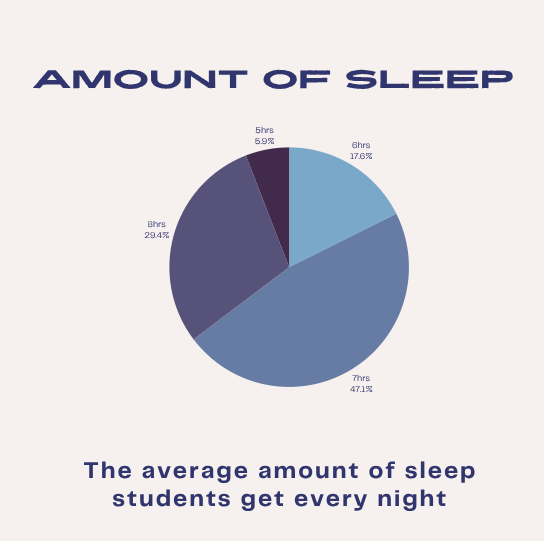Lincoln High students may not be getting enough sleep according to new LHS Advocate data collected from students on their sleeping habits and analysis on how rested they feel in the mornings. Students often complain about feeling tired and groggy throughout their school day and are unable to get through the entire period without drifting off. Twenty different students gave their input on the topic, and shared what times they went to bed and woke up, how much sleep they got, and much more.
On average, most students claim to get around seven hours of sleep every night. According to an article published on Kidshealth.org and medically reviewed by Mary L. Gavin, MD, “Most teens need about 8 to 10 hours of sleep each night. Getting the right amount of sleep is important for anyone who wants to do well on a test or play their best in sports.” As some kids are still getting the eight to ten hours they need every night, others are merely getting five to six hours which is almost half of the recommended amount of sleep. There are many different causes for this lack of sleep, including the time students must wake up and when they go to bed.
Most kids said they go to bed around 10:30 p.m. but those who had shorter amounts of sleep often go to bed closer to midnight. To make up for this loss of sleep, they would often end up snoozing more and therefore having less time to get ready in the morning. This causes their mornings to be rushed and then they are stressed out for the rest of the day. When kids have more time to get ready in the morning and wake up, they feel better-rested. This causes their day to be more fulfilling and makes it smoother for them.
When asked, most teens say that they do not take naps, but naps can actually be a very important source of catch-up sleep for those who are unable to get it at night. According to an article published by Heart.org, “A good nap can get you out of that afternoon slump, recharge your energy, and leave you more alert and in a better mood.” Napping has many benefits including increased alertness, attitude adjustment, improved memory and other perks. These are also side effects of going to bed for the recommended amount of time which means that when you nap it’s more helpful than just staying sleep deprived throughout the whole day. Those who nap often feel much better and can to make it throughout the day without feeling as tired and groggy then compared to those who don’t.
 Overall, students are often not getting the right amount of sleep and going to bed too late. How the schools are set up and what time students need to be there along with the time that they wake up isn’t as easily changeable. The best way to solve this problem is to help create healthy habits that have students going to bed at an earlier time and winding down in a calm environment before they go to bed. This is a small change that affects all students in their performance throughout the school day and can help boost behavior and academics.
Overall, students are often not getting the right amount of sleep and going to bed too late. How the schools are set up and what time students need to be there along with the time that they wake up isn’t as easily changeable. The best way to solve this problem is to help create healthy habits that have students going to bed at an earlier time and winding down in a calm environment before they go to bed. This is a small change that affects all students in their performance throughout the school day and can help boost behavior and academics.

Sienna Geib | Apr 4, 2025 at 9:45 am
WOW! Very informative I really learned a lot from this article. Thank you for sharing.